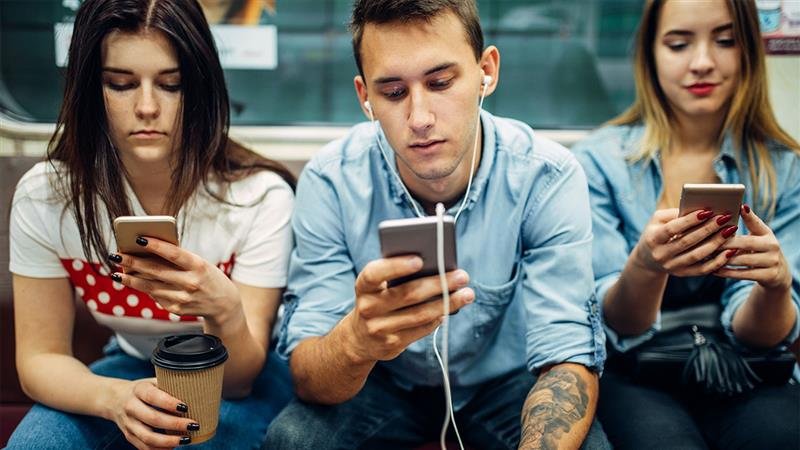
Mobile phones have become an integral part of our lives: communication, entertainment, tools for work, and so on. While undeniably convenient, the vast majority cannot live without constantly checking their devices. Mobile phone addiction has emerged from this expanding need, blurring the boundary between beneficial use and harmful reliance, disrupting relationships, mental health, and physical health.
The digital world requires continual attention, and cell phone addiction is a growing issue. How does one break away from this obsession? This blog explores mobile phone addiction's causes, effects, and mobile phone treatment centers in India. Whether via self-help or professional counseling, like the services provided by best rehabilitation centre for mobile phone addiction, you can reclaim control and live a more balanced life.
Understanding Mobile Phone Addiction
What is Mobile Phone Addiction?
Mobile phone addiction, or sometimes referred to as "nomophobia" (no-mobile-phone phobia), describes a behavioral disorder wherein a person feels a strong urge to overuse their phone—even when it affects everyday life. This condition includes compulsive checks for notifications, inability to remain away from the mobile for long, and prioritizing mobile use over real-life interactions.
Reasons for Mobile Addiction
Mobile phone addiction delves deep into psychological and social dynamics. A key reason is the dopamine feedback mechanism. Notifications, likes, or messages act as rewards, releasing dopamine, a chemical associated with pleasure, fostering dependency. Additionally, mobile apps are designed with engaging interfaces and infinite scrolling features to keep users glued for hours.
Effects of Mobile Phone Addiction
Mobile phone addiction affects mental and physical health. Mentally, it increases anxiety, depression, and stress, as users struggle to separate from their digital lives. It disrupts sleep by suppressing melatonin and interfering with the natural sleep cycle. Physically, it causes eye strain, poor posture, and repetitive strain injuries.
How to Cure Mobile Phone Addiction?
Self-Methods
Mobile phone detoxing involves conscious self-discipline, such as setting time restrictions, using built-in applications to monitor screen time, and designating phone-free zones (e.g., during meals or before sleep). Replacing phone use with activities like journaling or spending time in nature can also help.
Healthy Alternatives to Mobile Obsession
Engaging in activities like exercise, yoga, or hobbies (e.g., painting or cooking) can divert attention from phones. Social engagements, such as visiting friends or loved ones, foster offline connections and create a balanced lifestyle.
Professional Help
Professional help is essential for individuals unable to manage addiction alone. Cognitive-behavioral therapy and structured digital detox programs in environments with minimal distractions help individuals regain control and develop healthier habits.
Role of Rehabilitation Centers in Treating Mobile Phone Addiction
Rehab center for Mobile Phone addiction in India address mobile phone addiction through psychological therapy, counseling, and lifestyle coaching. They offer tailored programs, group therapies, mindfulness workshops, and outdoor activities to reduce screen time and promote holistic recovery. Co-occurring conditions like anxiety and depression are also addressed.
Best Rehabilitation Centre for Mobile Phone Addiction in India
India hosts many reputed rehab centers in cities like Mumbai, Delhi, Bangalore, and Hyderabad. These centers blend modern therapies with traditional Indian practices like yoga and meditation, ensuring effective treatment. Selecting the right rehabilitation centre for mobile phone addiction with qualified staff and comprehensive services is crucial for long-term recovery.
Benefits of Professional Therapy for Mobile Addiction
Organized Treatment
Therapists analyze the root causes of addiction and develop structured treatment plans, including limiting usage, creating phone-free zones, and encouraging offline communication.
Addressing Comorbid Conditions
Professionals identify and treat co-occurring conditions like anxiety or depression, ensuring a holistic recovery process.
Long-term Prevention
Counselors provide tools for stress management, self-awareness exercises, and relapse prevention, fostering sustainable recovery.
Future of Mobile Phone Addiction Treatment in India
Application of Technology
Rehab centers leverage digital tools like apps to track and manage phone usage, gradually reducing dependencies.
Increased Awareness and Accessibility
Awareness campaigns, workshops, and educational initiatives in schools and workplaces promote responsible technology use.
Holistic Treatment Approaches
Integrating yoga, meditation, and Ayurveda into rehab programs enhances overall mental and emotional well-being.
Conclusion
Mobile phone addiction disrupts relationships, mental health, and productivity, but it is manageable. With self-help measures, professional guidance, and support from rehab centers like Athena rehab center for mobile phone addiction treatment, individuals can overcome addiction and rebuild balanced lives.
Related Blogs





